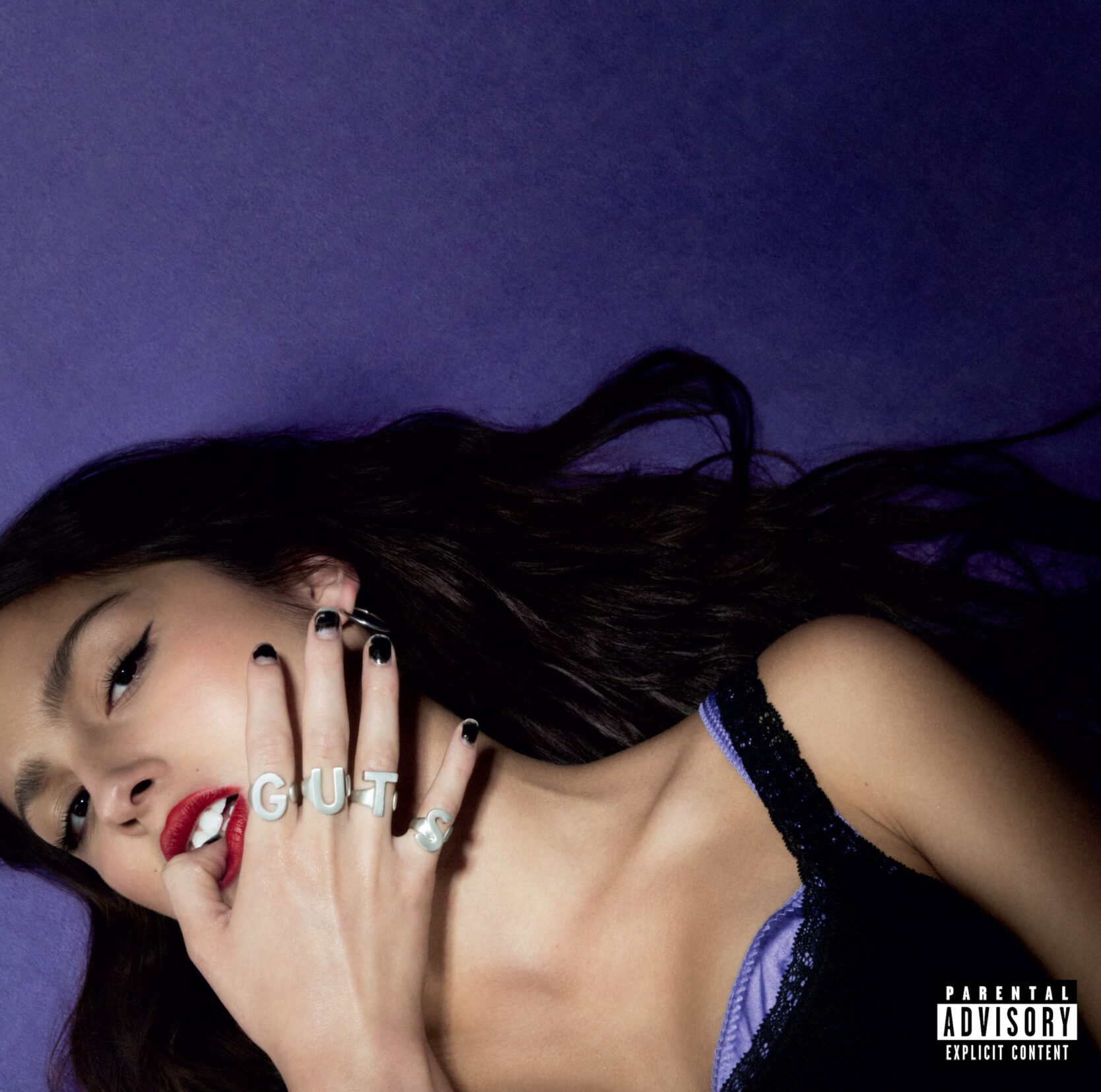The Disney starlet-to-pop star pipeline can be a delicate transition to navigate for any budding musician. Over the years, we’ve seen Britney Spears, Hilary Duff, Selena Gomez, Demi Lovato and Miley Cyrus face the daunting task of growing up without alienating their tween fanbase. However, their attempts to crossover were often encumbered by an onslaught of criticism as they toed the line between adolescence and adulthood. After employing songs of heartbreak to launch her career, Olivia Rodrigo, however, has seemed to strike the balance that her pop forebears had not. She did it all without ruffling the feathers of Disney’s top brass by riding a wrecking ball naked like Cyrus or end up as tabloid fodder for frequenting the L.A. clubs like Lindsay Lohan.
From the release of her 2021 debut single “Drivers License,” listeners were hooked by the unwavering authenticity of the teenage experience the High School Musical: The Series actress conveyed in a swelling ballad about first heartbreak. Those who thought its success was a fluke were proven wrong when she shared her sweet and tart debut album Sour last year, an earnest depiction of brutal teen angst and breakup tunes flanked by punchy phrases.
For any new artist, the sophomore album can be a formidable task, particularly if said artist nabbed three Grammys for their first. But Guts, co-written and produced by her Sour collaborator Dan Nigro, doesn’t backpedal. Instead, it’s a bold step forward for the now 20-year-old Rodrigo—an incisive unraveling of the chaos and disappointment of young adulthood, dating and fame with a side of sizzling with zingers and rage. It’s her Melodrama.
There is something about teenhood that is so unequivocally wistful and cringeworthy that it makes you question how you even survived. That nostalgia is exactly what Rodrigo preserves on Guts, through a blend of ‘90s grunge, riot grrrl and shimmering ballads.
From the get-go, Rodrigo is brimming with more delirious rage than ever. You can instantly picture “All-American Bitch” soundtracking the opening credits of 10 Things I Hate About You as the campy opener takes the seething speak-singing of “Good 4 u” a step further by pairing the grungy sound of Hole with the ebullient pop-punk spirit that vacillates between the Freaky Friday garage band Pink Slip and Avril Lavigne. The bratty “Get Him Back!” sees the singer rapping as she grapples with reconciliation and revenge with an ex. “I wanna key his car (I want to get him back)/ I wanna make him lunch (But then I, I want to get him back),” she sings over a “Steal My Sunshine”-like melody. The fierce ode to the instant gratification of hooking up with an ex is a fiercely fun adventure the Waitresses-tinged “Bad Idea Right?”
Rodrigo’s tales of social anxiety and embarrassment—spilling secrets and crushing on unavailable men—erupt into the stream-of-consciousness garage rock anthem “Ballad of a Homeschooled Girl,” where Rodrigo pours out her insecurities over thrashing guitars. “Each time I step outside, it’s social suicide / It’s social suicide, wanna curl up and die,” she howls.
But Rodrigo has not abandoned her affinity for devastating balladry — they remain her standouts and only further prove her versatility as a modern-day star. After all, her debut single from Guts, “Vampire,” turned the crushing disappointment of an ex who used her scorched earth, three-minute confessional with metaphorical comebacks about a “bloodsucker” and “fame fucker.” She continues this sentiment on the fast-tempo ballad “Logical” as she breathlessly moves through an anxiety spiral over the manipulation of an older ex. “Said I was too young, I was too soft/Can’t take a joke, can’t get you off,” her voice cracks. “The Grudge,” a whisper-core cut that explodes into a chilling belt as she wrestles with a power imbalance that she can’t quite move on from. “It takes strength to forgive, but I don’t feel strong,” she says mournfully.
As Rodrigo enters a new era of rock stardom, she continues to deconstruct the notion of celebrity and struggles with how destructive it can be. Since the release of “Drivers License,” she’s dealt with viral fame, scrutiny surrounding her relationships (and online vitriol sparked by them) and alleged celebrity feuds. On “Making the Bed,” Rodrigo dolefully cuts through the veneer of fame and fake people as she finds herself “gettin’ drunk at a club with my fair-weather friends and pushing “away all the people who know me the best.” While at best she feels like a Hollywood misfit, she realizes this is the consequence of achieving her dreams: “It’s me who’s been makin’ the bed.” And sometimes she craves normality. “I’m so tired of bein’ the girl that I am,” she sings wearily.
Throughout Rodrigo’s songwriting, she’s often compared herself to other femmes (“Drivers License,” “Jealousy Jealousy”) and on the deceptively sweet number “Lacy” she tackles that theme again, with sinister lyrics that depict the blurred lines of envy and a sapphic crush. “Dazzling starlet, Bardot reincarnatе / Well, aren’t you the greatest thing to ever exist?” she remarks with an airy lilt. “Pretty Isn’t Pretty,” which channels the fuzzy melancholy of Smashing Pumpkins “1979” as Rodrigo finds herself confronting the unrelenting beauty standards she faces.
As kids we we’re taught to live our lives in pursuit of becoming this fully formed person—we essentially spend our school days metaphorically tapping our foot waiting for freedom. On Sour, Rodrigo was already adamantly opposed to the romanticization of youth (“I’m so sick of 17/ Where’s my fucking teenage dream?”). But as Guts concludes, Rodrigo has now experienced firsthand how much growing up is saddled with disappointment—and she’s more jaded than ever.
And it’s the album closer, “Teenage Dream,” a show-stopping ballad that erupts into a cinematic rock opus, that’s the album’s true standout. On it, she confronts the pressure that has come with adulthood and celebrity—and the inevitable disappointment that weighs on her. “I’m sorry that I couldn’t always be your teenage dream,” she laments.
Like her Disney predecessors, Rodrigo may have realized early on that being a role model is an unsurmountable task, but if Guts proves anything, it’s that she doesn’t need to aspire to be one. There’s enough magic in the unfiltered candor of a teen girl’s diary entries to keep her fans wanting more.





